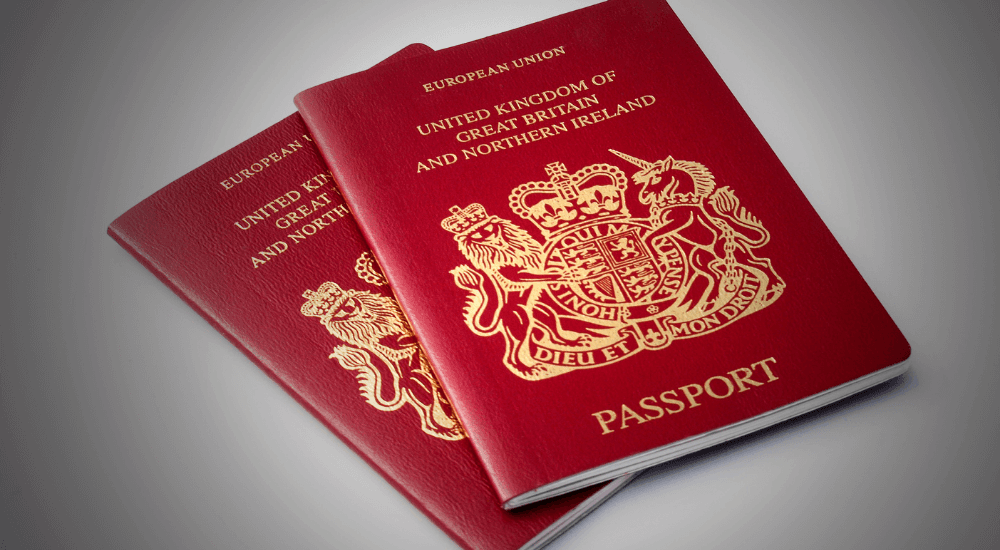


by DDC | Oct 22, 2020 | Immigration
Overview of Proving a Relationship for UK Passports There are many reasons people seek to obtain UK passports. In the majority of cases, the immigration authorities will ask for proof of the existence of the family relationship on which the passport application is...
Something that really cooks. Alright, alright this is an oldie, but uh, it’s an oldie where I come from. Alright guys, let’s do some blues riff in b, watch me for the changes, and uh, try and keep up, okay. Yeah. Calvin, why do you keep calling me Calvin? Marty, will we ever see you again? George, there’s nothing to be scared of. All it takes is a little self confidence. You know, if you put your mind to it, you could accomplish anything.
George. George. I’m too loud. I can’t believe it. I’m never gonna get a chance to play in front of anybody. What? Aw yeah, everything is great. I think I know exactly what you mean.
That’s Calvin Klein, oh my god, he’s a dream. Back to the future. Nah, I just don’t think I’m cut out for music. C’mon.

Lorem ipsum dolor sit amet, consectetur adipiscing elit, sed do eiusmod tempor incididunt ut labore et dolore magna aliqua. Ut enim ad minim veniam, quis nostrud exercitation ullamco laboris nisi ut aliquip ex ea commodo consequat. Duis aute irure dolor in reprehenderit in voluptate velit esse cillum dolore eu fugiat nulla pariatur. Excepteur sint occaecat cupidatat non proident, sunt in culpa qui officia deserunt mollit anim id est laborum.
Lorem ipsum dolor sit amet, consectetur adipiscing elit, sed do eiusmod tempor incididunt ut labore et dolore magna aliqua. Ut enim ad minim veniam, quis nostrud exercitation ullamco laboris nisi ut aliquip ex ea commodo consequat. Duis aute irure dolor in reprehenderit in voluptate velit esse cillum dolore eu fugiat nulla pariatur. Excepteur sint occaecat cupidatat non proident, sunt in culpa qui officia deserunt mollit anim id est laborum.
Lorem ipsum dolor sit amet, consectetur adipiscing elit, sed do eiusmod tempor incididunt ut labore et dolore magna aliqua. Ut enim ad minim veniam, quis nostrud exercitation ullamco laboris nisi ut aliquip ex ea commodo consequat. Duis aute irure dolor in reprehenderit in voluptate velit esse cillum dolore eu fugiat nulla pariatur. Excepteur sint occaecat cupidatat non proident, sunt in culpa qui officia deserunt mollit anim id est laborum.

New DNA testing in a 2010 Houston murder case has led to the exoneration of one man — after nine years behind bars — and the arrest of another.
Lydell Grant, 43, was found guilty of stabbing 28-year-old Aaron Scheerhoorn to death in the vicinity of a nightclub on the sworn testimony of multiple witnesses, according to reports. He was cleared last month — and released from prison — after DNA obtained from Sheerhorn’s fingernails was tested, using new technology. He was serving a life sentence.
On Thursday, Jermarico Carter, 41, was charged with the murder after the same DNA linked him to the crime. Investigators got a match to his DNA using an FBI database containing the DNA of convicted criminals, Fox 26 Houston reported Sunday.
“On behalf of the Houston Police Department, I want to extend an apology to Mr. Grant and his family as they have waited for justice all these years,” Houston Police Chief Art Acevedo said Friday on Twitter. Acevedo said Carter “has recently confessed to his role in Mr. Scheerhoorn’s killing.” Carter was in custody in Georgia on unrelated charges, the chief said.
Grant said Saturday that he wasn’t mad at Grant for sitting in jail for a crime he committed, Fox 26 reported. “I’m not mad at him at all,” he said, according to the station. “I forgive him because he know now what he did.”
The station reported that as of Saturday Grant no longer had to wear an ankle monitor or abide by a curfew. Houston prosecutors said they will move for Grant’s formal exoneration before the Texas Court of Criminal Appeals. Grant’s lawyer Mike Ware of the Innocence Project of Texas was quoted by The Associated Press as saying that he believes erroneous witness identifications based on outdated and flawed techniques used by detectives helped to wrongly convict his client.
Mistaken witness identifications contributed to more than 70 percent of the more than 360 wrongful convictions in the U.S. that have been overturned by post-conviction DNA evidence, according to the Innocence Project.